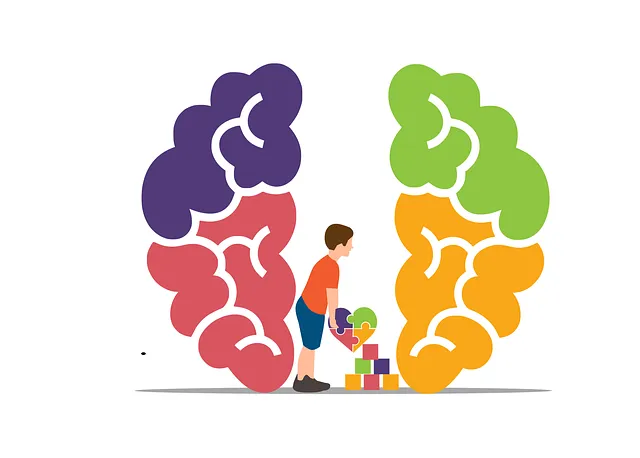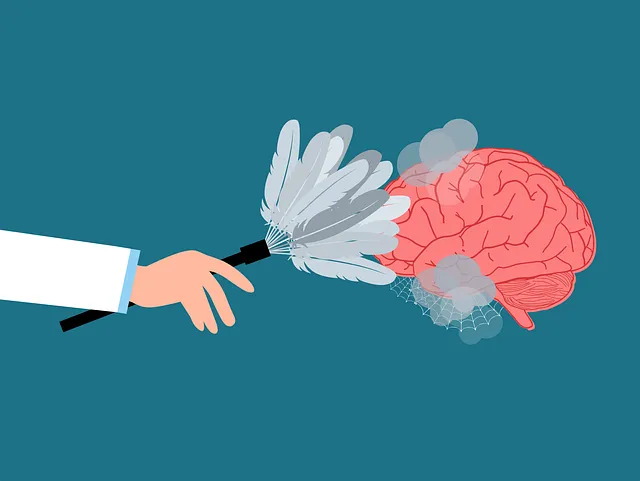Risk assessment is a cornerstone of mental health practice, highlighted by institutions like Boulder Kaiser Permanente behavioral health services. Through thorough evaluations of clients' backgrounds, behaviors, and triggers, therapists tailor interventions, implement safety plans, and promote emotional well-being using evidence-based techniques. Boulder Kaiser Permanente's reviews spotlight their operational excellence, focusing on robust risk management strategies, communication skills for therapist-client relationships, and Stress Management Workshops integrated into staff training. These initiatives aim to create a resilient, supportive work environment, leading to improved patient outcomes and professional resilience, as evidenced by positive feedback.
Mental health professionals regularly confront complex risks, necessitating robust risk assessment strategies. This article explores these dynamics through a comprehensive lens, focusing on understanding risk assessment within mental health practice and leveraging insights from notable studies, such as the Boulder Kaiser Permanente Behavioral Health Services Review. We’ll delve into effective risk management strategies for clinical settings, highlighting best practices to ensure patient safety and clinical integrity.
- Understanding Risk Assessment in Mental Health Practice
- The Boulder Kaiser Permanente Behavioral Health Services Review
- Strategies for Effective Risk Management in Clinical Settings
Understanding Risk Assessment in Mental Health Practice

Risk assessment is a cornerstone of mental health practice, essential for ensuring patient safety and effective treatment. It involves systematically identifying and evaluating potential hazards or risks that may impact a client’s mental wellness. At Boulder Kaiser Permanente behavioral health services, this process is meticulously crafted to support professionals in making informed decisions. The Mental Wellness Podcast Series Production often highlights the importance of risk assessment as a tool for fostering compassionate cultivation practices among therapists.
By conducting comprehensive risk assessments, mental health professionals can gain insights into clients’ backgrounds, behaviors, and potential triggers. This information enables them to tailor interventions, implement appropriate safety plans, and promote emotional well-being through evidence-based techniques. Through such proactive measures, facilities like Boulder Kaiser Permanente aim to enhance patient outcomes and foster a supportive environment that encourages both mental health recovery and personal growth.
The Boulder Kaiser Permanente Behavioral Health Services Review

The Boulder Kaiser Permanente Behavioral Health Services Review offers valuable insights into the operational and clinical aspects of a leading health services organization. This review process delves into various factors, including patient care, staff training, and organizational culture. The focus on mental health professionals is particularly significant as it highlights the importance of robust risk assessment strategies to ensure safe and effective treatment environments.
The review typically includes evaluations of communication strategies employed by healthcare providers, which are essential for building strong therapist-client relationships. Additionally, the integration of Stress Management Workshops within the organization’s training curriculum is a notable aspect. These workshops equip professionals with valuable tools to manage their own stress levels, thereby enhancing their ability to support patients effectively. Such initiatives underscore the commitment to fostering a resilient and supportive work environment.
Strategies for Effective Risk Management in Clinical Settings

In clinical settings, effective risk management is paramount for mental health professionals to ensure patient safety and well-being. Strategies for managing risks in behavioral health services, such as those offered by Boulder Kaiser Permanente, involve a multifaceted approach. First, Risk Management Planning for Mental Health Professionals should be a foundational element, outlining clear protocols for identifying, assessing, and mitigating potential hazards. This includes regular staff training on stress management and burnout prevention techniques, ensuring professionals are equipped to handle challenging situations.
Second, integrating robust communication channels facilitates early intervention when risks emerge. Transparent sharing of patient information among colleagues can prevent escalations. Additionally, fostering a supportive work environment that encourages open dialogue about stress levels and mental health concerns is vital. By adopting these strategies, Boulder Kaiser Permanente behavioral health services reviews consistently highlight improved patient outcomes and enhanced professional resilience.
Mental health professionals must continually assess and manage risks to ensure patient safety. The Boulder Kaiser Permanente behavioral health services reviews highlight best practices, emphasizing the importance of comprehensive risk assessment tools and ongoing monitoring. By implementing effective strategies for risk management, as discussed in this article, clinicians can enhance clinical outcomes, foster secure environments, and ultimately provide more robust care to their patients.






